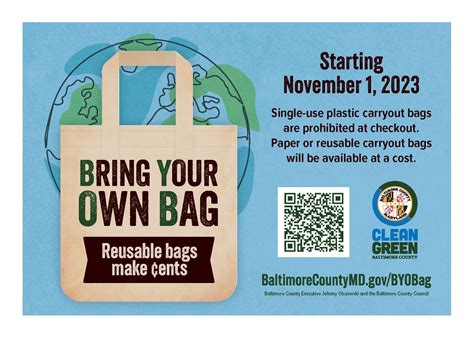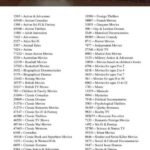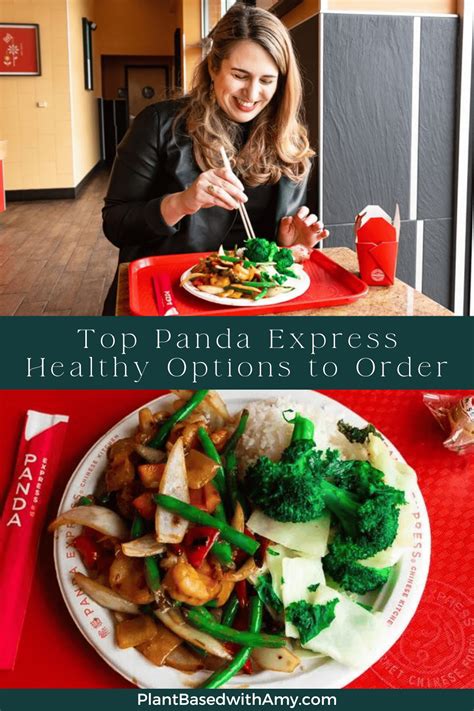
Costco shoppers who bring their own reusable shopping bags must still adhere to a key condition: they are responsible for packing their own purchases. This policy, consistently enforced across Costco warehouses, aims to streamline the checkout process and prevent potential discrepancies. While the bring-your-own-bag (BYOBag) rule allows members to use their preferred bags, it places the onus of packing squarely on the customer.
Costco’s long-standing policy regarding reusable bags remains consistent: members are welcome to bring their own bags to pack their purchases. However, a critical component of this policy stipulates that customers are solely responsible for packing their own groceries and merchandise into these bags. This requirement aims to maintain efficiency at the checkout lanes and minimize potential errors or disputes regarding the contents of each bag. The company consistently trains its employees to adhere to this procedure, ensuring uniform application across all locations.
The BYOBag policy at Costco is not a new development; it has been in place for many years. Costco’s stance on this matter underscores the retailer’s focus on operational efficiency and customer cooperation. By placing the responsibility of packing on the customer, Costco aims to expedite the checkout process, reduce labor costs associated with bagging, and minimize potential disputes over items packed. The consistent application of this policy across all warehouses reflects Costco’s commitment to standardized procedures and customer service.
Costco has not released any official statements altering this established practice. Therefore, members can expect to continue self-packing their groceries when using their own reusable bags. The company’s focus remains on providing value through its membership model, which relies heavily on efficient operations.
The policy has generally been accepted by Costco members. The retailer has cultivated a customer base that understands and appreciates the company’s focus on cost savings and operational efficiency. The self-packing policy is viewed as a trade-off for the low prices and bulk purchasing options offered at Costco warehouses.
While most members readily comply with the self-packing rule, occasional misunderstandings may arise. New members or infrequent shoppers may not be fully aware of the policy, leading to confusion at the checkout. However, Costco employees are trained to politely explain the procedure and assist customers as needed.
Costco’s BYOBag policy is rooted in several key factors: efficiency, cost savings, and inventory control. By requiring customers to pack their own bags, Costco reduces the time required for each transaction, allowing for a higher volume of customers to be processed. This is particularly important during peak shopping hours when checkout lines can be lengthy.
The self-packing policy also translates to significant cost savings for Costco. By eliminating the need for employees to pack groceries, the retailer reduces labor costs associated with each transaction. These savings are then passed on to members in the form of lower prices.
Moreover, the BYOBag policy helps Costco maintain better inventory control. By allowing customers to pack their own bags, the retailer reduces the risk of discrepancies between the items purchased and the items packed. This minimizes potential losses due to theft or misplacement.
The self-packing policy also aligns with Costco’s overall business model, which emphasizes customer participation and self-service. From loading groceries into shopping carts to retrieving items from pallets, Costco encourages members to take an active role in the shopping process. This approach allows the retailer to operate more efficiently and offer lower prices.
While the BYOBag policy is generally well-received, it has also faced some criticism. Some customers find it inconvenient to pack their own groceries, particularly when purchasing a large number of items. Others argue that the policy places an unfair burden on customers, who are already paying a membership fee to shop at Costco.
Despite these criticisms, Costco remains committed to the BYOBag policy. The retailer believes that the benefits of the policy, including efficiency, cost savings, and inventory control, outweigh the drawbacks. Costco also emphasizes that the policy is consistently applied across all locations, ensuring fairness and transparency.
The company has also taken steps to mitigate some of the potential inconveniences associated with the self-packing policy. For example, Costco provides large, sturdy shopping carts that can accommodate a significant volume of groceries. The retailer also offers designated packing areas where customers can organize their purchases before loading them into their vehicles.
The BYOBag policy is just one aspect of Costco’s overall approach to sustainability. The retailer has also implemented a number of other initiatives aimed at reducing its environmental impact, including using recycled materials in its packaging and promoting energy efficiency in its warehouses.
Costco’s focus on sustainability reflects a growing trend among retailers to adopt more environmentally friendly practices. Consumers are increasingly demanding that companies take responsibility for their environmental impact, and retailers are responding by implementing a variety of sustainability initiatives.
The BYOBag policy is likely to remain in place at Costco for the foreseeable future. The retailer has consistently emphasized the importance of the policy and has not indicated any plans to change it. Members can therefore expect to continue self-packing their groceries when using their own reusable bags.
Costco’s BYOBag policy serves as a reminder that even small changes in consumer behavior can have a significant impact on efficiency, cost savings, and sustainability. By requiring customers to pack their own groceries, Costco is able to operate more efficiently, offer lower prices, and reduce its environmental impact. While the policy may not be universally popular, it reflects Costco’s commitment to its core values and its dedication to providing value to its members. The company’s adherence to consistent operational procedures highlights its commitment to efficiency and customer cooperation, aspects that are deeply ingrained in the retailer’s culture.
Costco’s business model relies heavily on bulk sales and high turnover, making efficiency at the checkout lanes paramount. The BYOBag policy directly contributes to this efficiency by transferring the packing responsibility to the customer, thereby reducing the time each transaction takes. This seemingly small change has a significant cumulative effect, especially during peak hours, allowing Costco to serve more customers and maintain its competitive pricing.
Furthermore, the self-packing policy is a subtle but effective way for Costco to control costs. Labor costs are a major expense for any retailer, and by reducing the time employees spend packing groceries, Costco can allocate its resources more effectively. These cost savings are then passed on to members in the form of lower prices, reinforcing the value proposition of a Costco membership.
The policy also aligns with Costco’s approach to inventory management. By having customers pack their own bags, the retailer minimizes the potential for errors in packing, reducing the risk of discrepancies between purchased items and packed items. This helps maintain accurate inventory records and prevents losses due to theft or misplacement. The direct engagement of the customer in the packing process adds an extra layer of accountability and reduces the reliance on employees for this specific task.
While the BYOBag policy is primarily driven by operational and financial considerations, it also contributes to Costco’s sustainability efforts. By encouraging the use of reusable bags, Costco reduces the demand for single-use plastic bags, which are a major source of pollution. While the impact of this policy on overall plastic consumption may be relatively small, it demonstrates Costco’s commitment to environmental responsibility and its willingness to encourage sustainable practices among its members.
The policy’s long-standing implementation also speaks to the loyalty and understanding of Costco’s customer base. Members are generally willing to accept certain inconveniences, such as self-packing, in exchange for the benefits of a Costco membership, including low prices, bulk purchasing options, and a wide selection of products. This mutual understanding between Costco and its members is a key factor in the retailer’s success.
However, the BYOBag policy is not without its challenges. Some customers may find it difficult or inconvenient to pack their own groceries, particularly if they have mobility issues or are purchasing a large number of items. In such cases, Costco employees are typically willing to assist, but the policy itself remains in place.
To mitigate these challenges, Costco provides large, sturdy shopping carts that can accommodate a significant volume of groceries. The retailer also offers designated packing areas where customers can organize their purchases before loading them into their vehicles. These amenities help to make the self-packing process more manageable and convenient.
The success of the BYOBag policy also depends on effective communication and training. Costco employees are trained to explain the policy clearly and politely to customers, and to assist those who may need help. This ensures that the policy is implemented consistently and fairly across all locations.
In conclusion, Costco’s BYOBag policy is a multifaceted initiative that contributes to the retailer’s operational efficiency, cost savings, inventory control, and sustainability efforts. While the policy may not be universally popular, it reflects Costco’s commitment to its core values and its dedication to providing value to its members. The policy’s long-standing implementation and the general acceptance by Costco’s customer base underscore the retailer’s success in balancing operational efficiency with customer satisfaction. The BYOBag policy is likely to remain a fixture at Costco warehouses for the foreseeable future, as it is deeply intertwined with the retailer’s business model and its commitment to providing value to its members. The policy not only influences the shopping experience but also underscores Costco’s commitment to efficient operations and cost management, which are critical components of its business strategy. As Costco continues to expand and adapt to the changing retail landscape, the BYOBag policy will likely remain a key element of its overall approach to customer service and operational efficiency. The policy also allows Costco to maintain competitive pricing by reducing operational costs.
The consistent enforcement of the BYOBag policy reflects Costco’s commitment to standardized procedures and fairness across its vast network of warehouses. This uniformity ensures that all members, regardless of location, experience the same shopping conditions and understand the expectations regarding self-packing. The policy is a testament to Costco’s operational philosophy, which prioritizes efficiency and customer cooperation.
Furthermore, the BYOBag policy can be seen as a reflection of Costco’s broader approach to customer engagement. The retailer encourages members to participate actively in the shopping process, from selecting items from pallets to loading their own purchases into their vehicles. This hands-on approach fosters a sense of ownership and responsibility among members, contributing to the overall Costco experience.
The policy also has implications for Costco’s brand image. By promoting the use of reusable bags, Costco is signaling its commitment to environmental sustainability, which resonates with an increasing number of consumers. This can enhance Costco’s reputation as a responsible corporate citizen and attract environmentally conscious members.
However, it is important to acknowledge that the BYOBag policy is not without its potential drawbacks. Some customers may find it inconvenient to pack their own groceries, particularly those who are elderly, disabled, or have young children. Costco needs to be sensitive to these concerns and provide assistance when necessary.
The company should also ensure that its employees are properly trained to handle situations where customers are unable or unwilling to pack their own bags. Clear communication and flexibility are essential to maintaining positive customer relations.
Despite these challenges, the BYOBag policy remains a valuable tool for Costco. It contributes to the retailer’s operational efficiency, cost savings, sustainability efforts, and brand image. By carefully managing the implementation of the policy and addressing any potential concerns, Costco can continue to reap the benefits of this initiative while maintaining a positive customer experience.
The BYOBag policy is a microcosm of Costco’s overall business strategy, which is based on providing value to its members through efficient operations, low prices, and a wide selection of products. By encouraging customer participation and promoting sustainable practices, Costco is able to create a unique shopping experience that appeals to a loyal and growing membership base.
As Costco continues to expand its global footprint, the BYOBag policy is likely to remain a key element of its operational model. The policy has proven to be effective in reducing costs and promoting efficiency, and it aligns with Costco’s commitment to environmental responsibility. While the company may need to adapt the policy to accommodate local regulations and cultural norms, the underlying principles are likely to remain the same.
In conclusion, Costco’s BYOBag policy is a well-established practice that reflects the retailer’s commitment to efficiency, cost savings, sustainability, and customer engagement. While the policy may not be universally popular, it has been largely accepted by Costco members as a necessary trade-off for the benefits of a Costco membership. The BYOBag policy is likely to remain a fixture at Costco warehouses for the foreseeable future, as it is deeply intertwined with the retailer’s business model and its commitment to providing value to its members.
The consistent application of the BYOBag policy across all Costco warehouses demonstrates the company’s dedication to maintaining standardized operations and ensuring a consistent customer experience. This uniformity is essential for a retailer with such a vast global presence, as it allows Costco to streamline its processes and reduce complexity.
Furthermore, the BYOBag policy can be seen as a subtle form of branding. It reinforces Costco’s image as a no-frills, value-oriented retailer that prioritizes efficiency and cost savings. This message resonates with Costco’s target audience, which is typically price-conscious and willing to accept certain inconveniences in exchange for lower prices.
The policy also serves as a reminder to customers of the importance of sustainability. By encouraging the use of reusable bags, Costco is promoting environmentally responsible behavior and contributing to a more sustainable future. This can enhance Costco’s reputation as a responsible corporate citizen and attract environmentally conscious members.
However, it is important to acknowledge that the BYOBag policy is not without its potential downsides. Some customers may find it challenging to pack their own groceries, particularly those with physical limitations or those who are purchasing a large number of items. Costco needs to be mindful of these challenges and provide assistance when necessary.
The company should also ensure that its employees are well-trained to handle situations where customers are unable or unwilling to pack their own bags. Clear communication, empathy, and flexibility are essential for maintaining positive customer relations.
Despite these potential drawbacks, the BYOBag policy remains a valuable asset for Costco. It contributes to the retailer’s operational efficiency, cost savings, sustainability efforts, and brand image. By carefully managing the implementation of the policy and addressing any potential concerns, Costco can continue to reap the benefits of this initiative while maintaining a positive and loyal customer base.
The BYOBag policy is an integral part of the Costco business model and is unlikely to change significantly in the near future. It is a testament to Costco’s commitment to efficiency, cost savings, and customer engagement. The policy is also a reflection of Costco’s broader approach to sustainability and its commitment to being a responsible corporate citizen.
In conclusion, Costco’s BYOBag policy is a well-established practice that reflects the retailer’s commitment to its core values. While the policy may not be universally popular, it has been largely accepted by Costco members as a necessary trade-off for the benefits of a Costco membership. The BYOBag policy is likely to remain a fixture at Costco warehouses for the foreseeable future, as it is deeply intertwined with the retailer’s business model and its commitment to providing value to its members.
Frequently Asked Questions (FAQ)
1. What is Costco’s BYOBag policy?
Costco’s BYOBag policy allows members to bring their own reusable shopping bags. However, a key condition is that members are solely responsible for packing their own purchases into these bags. This policy aims to maintain efficiency at the checkout lanes and minimize potential errors.
Quote: “Costco shoppers who bring their own reusable shopping bags must still adhere to a key condition: they are responsible for packing their own purchases.”
2. Why does Costco require customers to pack their own bags?
Costco requires customers to pack their own bags primarily for efficiency and cost savings. Self-packing reduces the time required for each transaction, allowing Costco to process a higher volume of customers, especially during peak hours. It also reduces labor costs associated with bagging and minimizes potential discrepancies between items purchased and packed.
3. Is the BYOBag policy a new change at Costco?
No, the BYOBag policy is not new. It has been in place for many years and is a long-standing practice at Costco warehouses. The retailer consistently trains its employees to adhere to this procedure.
4. What if I am unable to pack my own bags due to a disability or other reason?
While the policy generally requires self-packing, Costco employees are typically willing to assist customers who are unable to pack their own bags due to a disability or other valid reason. It is recommended to communicate your needs to the cashier or a nearby employee for assistance.
5. How does the BYOBag policy contribute to Costco’s sustainability efforts?
The BYOBag policy promotes the use of reusable bags, which reduces the demand for single-use plastic bags. While the impact on overall plastic consumption may be relatively small, it demonstrates Costco’s commitment to environmental responsibility and encourages sustainable practices among its members.









